CREATE fellows are researchers whose scholarship has contributed to the understanding of risk, behavioral, economic and decision analysis of threats and emergencies that jeopardize lives and livelihood, or jeopardize the environment. Fellows conduct research on threats that are malevolent in origin (e.g., terrorism), as well as unintentional accidents and naturally occurring disasters.
For information on the CREATE Fellows program, click here.
Senior Research Fellows
Eli Berman
University of California, San Diego
Professor, Department of Economics; Research Associate, National Bureau of Economic Research; Co-Director, Empirical Studies of Conflict Project
Eli Berman is a professor in the Department of Economics at the University of California, San Diego. He is also a research associate at the National Bureau of Economic Research, a research director for International Security Studies at the Institute for Global Conflict and Cooperation (IGCC) and director for the Policy Design and Evaluation Lab (PDEL). His major research interests include development and conflict, terrorism, and religion. Funding from CREATE enabled him to study the economics of counterinsurgency in Iraq; religion, terrorism and public goods, Journal of Public Economics, date); and successful development in conflict zones, among other topics. Grants from the National Science Foundation enabled Eli to examine relationships between religion and fertility from an economic standpoint, highlighted in the publications in the Journal of Public Economics, (date) and and in the New Palgrave Encyclopedia of Economics. His book Radical, Religious and Violent: The New Economics of Terrorism was published by MIT Press. He also received funding support for work on terrorism from the Minerva Research Initiative. Eli is President of the Economics of National Security Association.
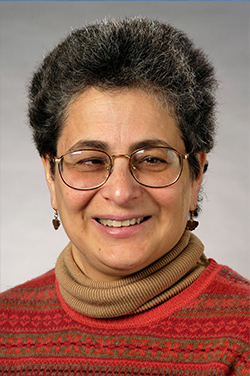

Vicki Bier
University of Wisconsin-Madison
Professor and Chair, Industrial Systems and Engineering
Vicki Bier is a professor and chair of the Industrial Systems and Engineering department at the University of Wisconsin-Madison. Her research interests include the application of game theory to identify optimal resource allocation strategies for protecting critical infrastructure from intentional attacks. Other interests include: the use of accident “precursors" or near misses in probabilistic risk analysis; the use of expert opinion; and methods for effective risk communication, both to decision makers and to the general public. Vicki’s work with CREATE has included studies examining adversary decision modeling, terrorism risk management and other topics. She has received the Distinguished Achievement Award from the Society for Risk Analysis. Frank P. Ramsey Medal from the Decision Analysis Society, and is a Fellow of the Institute for Operations Research and the Management Sciences. She currently serves as the Editor-in Chief of Decision Analysis.
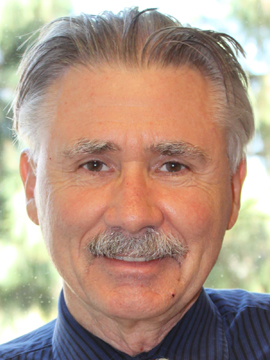

William Burns
California State University, San Marcos
Decision Research, Research Scientist
Bill Burns is a research scientist at Decision Research in Eugene, Oregon. He also teaches probability, regression and decision modeling part-time at California State University, San Marcos. His research investigates public response to crisis events, deterrence of terrorism, and mitigating factors that contribute to public susceptibility to misinformation. He has been the lead investigator on three CREATE sponsored research projects for the TSA and has given scientific briefings to DHS and the Pentagon. Bill spent three summers working in Washington D.C. at the TSA on a Department of Homeland Security University Faculty Fellowship as a scientific advisor. Bill’s work has also been funded by the National Science Foundation.


Robin L. Dillon-Merrill
Georgetown University
Professor, McDonough School of Business
Robin L. Dillon-Merrill is a professor in the McDonough School of Business at Georgetown University. From 2017-2019 she served as the Program Director for the National Science Foundation’s Humans, Disasters and the Built Environment program in the Directorate of Engineering. Robin seeks to understand and explain how and why people make the decisions that they do under conditions of uncertainty and risk. This research specifically examines critical decisions that people have made following near-miss events in situations with severe outcomes including hurricane evacuation, terrorism, cybersecurity, and NASA mission management. Robin’s projects with CREATE have focused on risk modeling and communication for the Transportation Security Agency (TSA) and more broadly individuals’ responses to terrorism near-miss events over time. She has received research funding from the National Science Foundation, NASA, the Department of Defense, and the Department of Homeland Security through CREATE.


Peter B. Dixon
Victoria University, Australia
Professor, Center of Policy Studies
Peter B. Dixon is a professor at the Center of Policy Studies, Victoria University, Melbourne, Australia. He previously held the position of Sir John Monash Distinguished Professor at Monash University. His research is focused on advances in computable general equilibrium modelling and it application to international trade, disasters and economic policy-making in general. His work with CREATE include studies examining the costs of U.S. border closures, the economic implications of terrorism events, and the effects of a H1N1 epidemic. Peter is a Fellow of Academy of the Social Sciences in Australia Distinguished Fellow of the Economic Society of Australia, and an Officer in the Order of Australia. He was also recently inducted into the Global Trade Analysis Project Research Fellow Hall of Fame.


Scott Farrow
University of Maryland, Baltimore County
Emeritus Professor, Department of Economics, formerly Chief Economist of the GAO
Scott Farrow is an emeritus professor in the Department of Economics at the University of Maryland, Baltimore County. He previously served as the Chief Economist of the U.S. Government Accountability Office and twice in the Executive Office of the President. His work focuses on the economic, especially benefit-cost and risk-based, evaluation of government programs spanning issues in homeland security, the environment and natural resources. Scott’s work with CREATE includes studies examining the value of Homeland Security research and the economics of Homeland Security expenditure. He was the founding editor of the Journal of Benefit-Cost Analysis and received the Distinguished Service Award from the Society for Benefit-Cost Analysis.


Gilberto Montibeller
Loughborough University
Professor of Management Science
Gilberto Montibeller is a professor of Management Science at Loughborough University, and the Acting Associate Dean for Enterprise at the School of Business and Economics. His major research interests include behavioral issues in risk and decision analysis, risk management and resource prioritization against security and health threats. Gilberto’s work with CREATE includes various studies investigating the behavior of terrorist organizations. His research has been recognized with best publication awards granted by the Society of Risk Analysis, Informs, and the International Society on Multi-Criteria Decision Making. He is associate editor of the Informs Decision Analysis Journal and has served for a decade as area editor of the Journal of Multi-Criteria Decision Analysis.
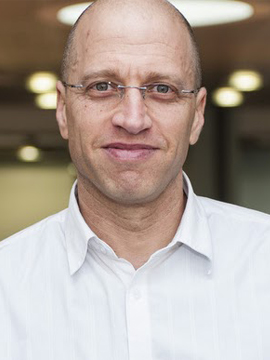

Ilan Noy
Victoria University of Wellington
Chair in the Economics of Disasters and Climate Change and Professor of Economics
Ilan Noy is the chair in the Economics of Disasters and Climate Change and a professor of economics in the Wellington School of Business and Government at Te Herenga Waka-Victoria University of Wellington. Dr. Noy and his research group study disasters—including earthquakes, epidemics, droughts, and cyclones—and other phenomena related to climate change. The research focuses on domestic and international case studies and comparative analysis of economic aspects of these extreme events. Between 2015-2017, he was a member of the United Nations Working Group on National Risk Assessments. In 2017, he co-founded a new Springer Journal, Economics of Disasters and Climate Change. He also currently serves on the editorial boards of Environmental Hazards, the Journal of International Commerce, Economics and Policy, and the Journal of International Money and Finance.
Lawrence Palinkas
University of California, San Diego
Clinical Professor of Public Health
Dr. Lawrence Palinkas is Clinical Professor in the Herbert Wertheim School of Public Health at the University of California, San Diego. A medical anthropologist, his primary areas of expertise lie within mental health services research, preventive medicine, and cross-cultural medicine. Dr. Palinkas is particularly interested in behavioral health, global health and health disparities, implementation science, community-based participatory research, and the sociocultural and environmental determinants of health and health-related behavior. His research has been funded by the National Science Foundation, NASA, NIH, the MacArthur Foundation, and the William T. Grant Foundation. Current research encompasses implementation of child and adolescent mental health services, sustainment of prevention programs and initiatives and effects of climate change on vulnerable populations. Dr. Palinkas is the co-lead of the Social Work Grand Challenge on Strengthening Social Responses to Environmental Change and a member of committees of the National Research Council and National Academy of Medicine. Dr. Palinkas is an elected fellow of the American Academy of Social Welfare and Social Work, a fellow of the Society for Social Work and Research, American Anthropological Association and Society for Applied Anthropology, and the author of more than 450 publications.


Bryan Roberts
Economist
Bryan Roberts is an economist who has led major research projects for the U.S. government, think tanks, and private foundations on analysis of issues related to immigration, border security, and border management. These research projects have made innovative use of large administrative-record datasets and surveys to answer analytically challenging questions. His most recent research activity involved developing analysis of the dynamics of the covid-19 pandemic and its psychological impacts. During 2005-2011, he was a research economist in the Department of Homeland Security and worked in several offices, including the Office of Policy, the Science and Technology Directorate, the Office of Immigration Statistics, and the Office of Program Analysis and Evaluation, where he served as an Assistant Director responsible for analysis of the U.S. government’s programs related to immigration and border security. Prior to his career in the U.S. government, he worked as a resident economic advisor in several countries in the Balkans and former Soviet Union and advised their governments on a wide range of economic issues. He has also served as an Assistant Professor of Economics at the University of Miami during 1993-1998 and as an Adjunct Professor in the Public Policy Program of George Washington University during 2010-2016. His teaching career focused on courses in economic development, economics for public policy making, and cost-benefit analysis.
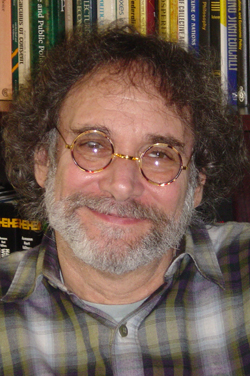

Todd Sandler
University of Texas at Dallas
Chair Emeritus in Economics and Political Economy
Todd Sandler is Chair Emeritus in Economics and Political Economy at the University of Texas at Dallas. In 1983 and thereafter, he published some of the pioneering studies on terrorism in the American Economic Review, Journal of Law and Economics, American Political Science Review, Journal of Public Economics, and elsewhere that continue to be highly cited. In 2003, he was the co-recipient of the National Academy of Sciences Award for Behavioral Research Relevant to the Prevention of Nuclear War for game-theoretic analyses of terrorism. His current research interests include the study of terrorism and its myriad aspects (e.g., hostage taking, terrorist groups, and foreign aid as a counterterrorism tool). Also, he studies public goods and defense economics. He received funding from the National Science Foundation, UN Development Program, Asian Development Bank, and CREATE to study terrorism. His latest book, Terrorism: What Everyone Needs to Know, was published by Oxford University Press in 2018.


Paul Slovic
University of Oregon
Professor of Psychology; President, Decision Research
Paul Slovic is a professor of psychology at the University of Oregon and the President of Decision Research. His research interests include the psychology of risk and decision making, risk perception, genocide, war and terrorism. Paul has worked with CREATE on a host of studies of the risk and economic impact of terrorism. He is a past President of the Society for Risk Analysis and has received its Distinguished Contribution Award. He has also received the Distinguished Scientific Contribution Award from the American Psychological Association, and the Outstanding Contribution to Science Award from the Oregon Academy of Science. He is an elected member of the American Academy of Arts and Sciences and the National Academy of Sciences.


Milind Tambe
Harvard University
Gordon McKay Professor of Computer Science and Director of Center for Research in Computation and Society
Milind Tambe is the Gordon McKay Professor of Computer Science at Harvard University where he also serves as the Director of the Center for Research in Computation and Society. Milind’s current research is focused on artificial intelligence for social good. His work with CREATE includes studies to randomize patrols for the U.S. Coast Guard and Los Angeles Sheriff’s Department as well as checkpoints and canine patrols at the Los Angeles International Airport. He is recipient of the International Joint Conference on AI John McCarthy Award, ACM/SIGAI Autonomous Agents Research Award from the Autonomous Agents and Multiagent Systems Conference, Association for Advancement of Artificial Intelligence Robert S Engelmore Memorial Lecture Award, INFORMS Wagner Prize, Military Operations Research Society Rist Prize, and Christopher Columbus Fellowship Foundation Homeland Security Award. He is a fellow of AAAI and ACM. He has also received meritorious Team Commendations from the US Coast Guard and L.A. Airport Police, and a Certificate of Appreciation from US Federal Air Marshals Service for pioneering real-world deployments of security games.


Jun Zhuang
University at Buffalo, The State University of New York
Professor and Director of Graduate Studies, Director of the Decision, Risk & Data Laboratory, Department of Industrial and Systems Engineering
Jun Zhuang is a Professor, Director of Graduate Studies, and Director of the Decision, Risk & Data Laboratory, Department of Industrial and Systems Engineering, School of Engineering and Applied Sciences (SEAS) at the University at Buffalo (UB). His long-term research goal is to integrate operations research, big data analytics, game theory, and decision analysis to improve mitigation, preparedness, response, and recovery for natural and man-made disasters. Other areas of interest include applications to health care, sports, transportation, supply chain management, sustainability, and architecture. He has been a principal investigator of over 30 research grants funded by the U.S. National Science Foundation (NSF), by the U.S. Department of Homeland Security (DHS), by the U.S. Department of Energy, by the U.S. Air Force Office of Scientific Research (AFOSR), and by the National Fire Protection Association (NFPA).
Research Fellows


Sam Chatterjee
Pacific Northwest National Laboratory
Appld Stats & Comp Modeling Data Scientist
Samrat Chatterjee is an Operations Research Scientist with the National Security Directorate at the Pacific Northwest National Laboratory (PNNL). His research focuses on assessing and managing risks to critical cyber and physical infrastructure systems and processes from multiple hazards using interdisciplinary modeling, simulation, and operations research methods. His research activities at PNNL focus on national security in support of the Department of Homeland Security, Department of Energy, and the Department of Defense.


Zhenhua Chen
The Ohio State University, College of Engineering
Assistant Professor in City and Regional Planning
Zhenhua Chen is an assistant professor in City and Regional Planning (CRP) at the Knowlton School of Architecture at OSU. His research interest includes infrastructure planning and policy, regional science, risk and resilience, and big data analytics. He has a strong background in economic impact assessments of infrastructure investment, disasters and resilience using Computable General Equilibrium (CGE) models. He is one of the lead developers of the Economic Consequence Analysis Tool, an Excel-VBA software that is intended for policymakers and analysts who need quick estimates of the economic impact of numerous threats, including terrorism, natural disasters, and technological accidents.


Noah Dormady
The Ohio State University, John Glenn College of Public Affairs
Associate Professor
Noah Dormady teaches and conducts research in the areas of applied public policy analysis, energy policy, environmental policy, economic resilience, and terrorism and natural hazards. Professor Dormady’s energy and environmental work evaluates the interactions between deregulated electricity markets and market-based environmental policies. His work in this area has focused mainly on the economic efficiency of market design, deregulation, and issues of competition under market power (e.g., monopolies).
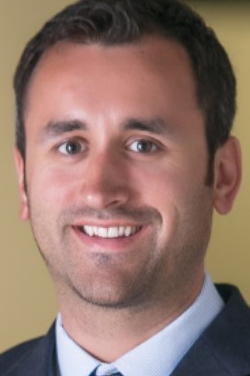

Fynnwin Prager
California State University, Dominguez Hills
Assistant Professor
Fynn Prager is currently Assistant Professor of Public Administration at CSU Dominguez Hills, College of Business Administration and Public Policy. Previously, he was a Postdoctoral Research Associate at USC’s Price School of Public Policy and Center for Risk and Economic Analysis of Terrorism Events (CREATE), and he remains affiliated with the Center. He received his PhD in Policy, Planning, and Development from the Price School, and his research has focused on the policy and economics of disasters, particularly environmental and terrorism policy, and the impacts to regional economies and transportation systems.


Dan Wei
Los Angeles County Economic Development Corporation
Economist
Dan Wei is an economist at the Los Angeles County Economic Development Corporation and former Research Associate Professor at the USC Sol Price School of Public Policy. Her research focuses on economic consequence analysis of natural or man-made hazards, modeling of economic impacts of climate mitigation policies, and analysis of market based GHG mitigation policy instruments. Her research has been published in journals such as Journal of Public Policy, Ecological Economics, The Energy Journal, Environment and Planning A, International Regional Science Review, Climate Policy, Energy Policy, Regional Science Policy and Practice, Contemporary Economic Policy, Economics of Energy and Environmental Policy, Economic Systems Research, Earthquake Spectra, Risk Analysis, Natural Hazards Review, and Transport Policy.


